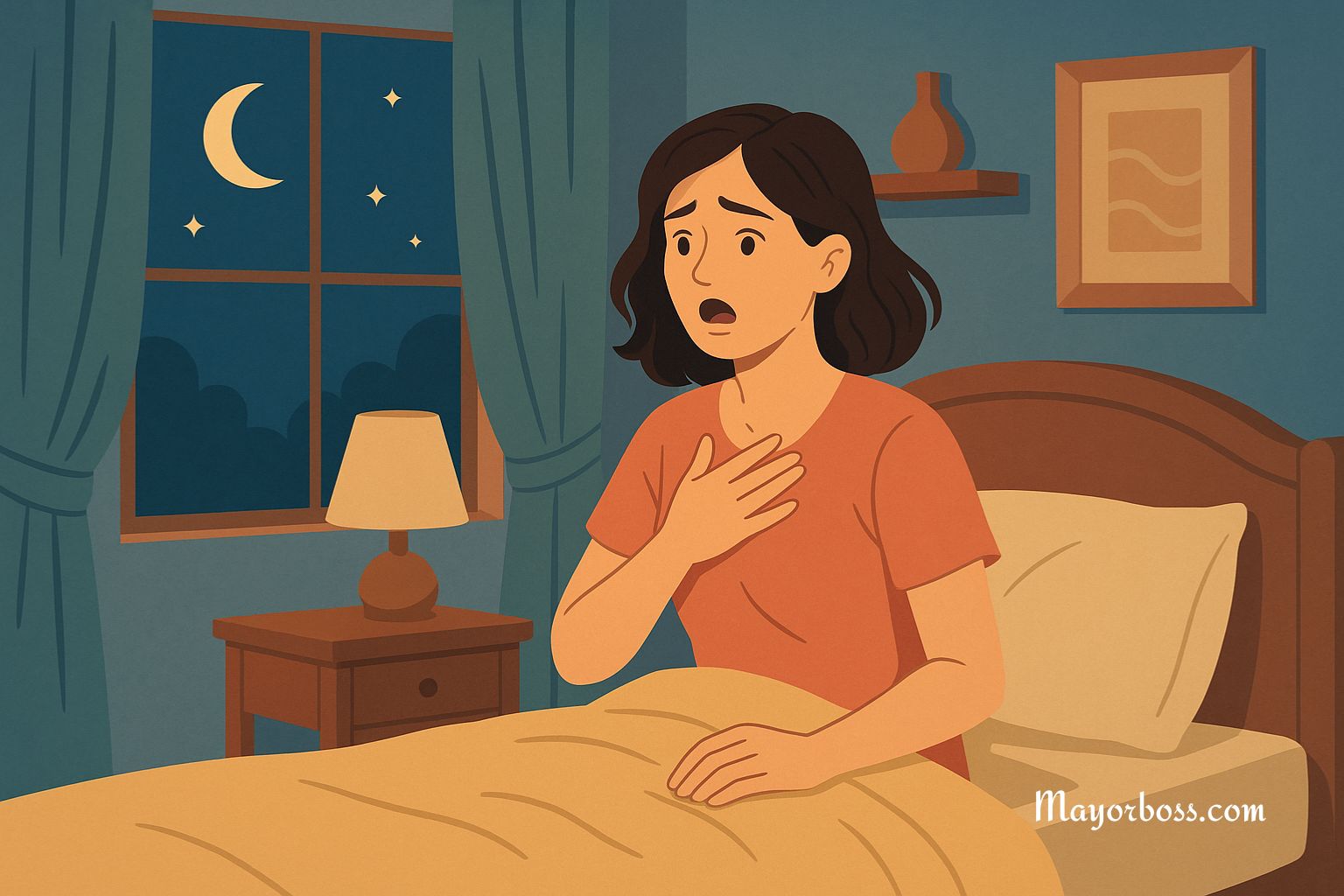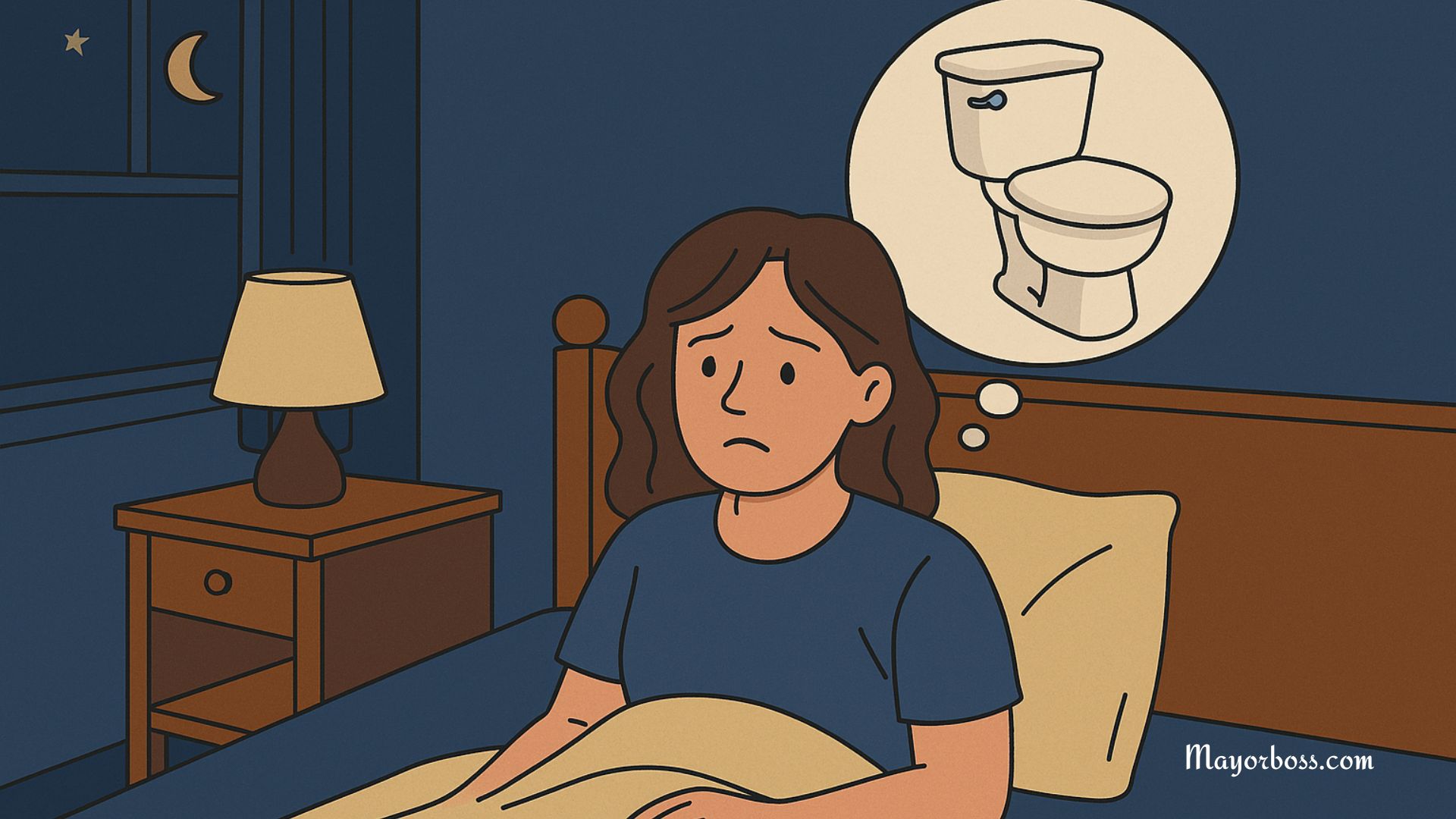Don’t Ignore This Night-Time Symptom—It May Point to Stroke or Heart Failure
Have you noticed this happening at night? You lie down at night, expecting rest. But then, out of nowhere, you wake up struggling to breathe. Your heart might be pounding. You may even feel anxious or disoriented. If this sounds familiar, don’t brush it off as just a bad dream or stress.
Waking up gasping for air or feeling short of breath during the night could be more than just a discomfort—it may be an early red flag for serious conditions like heart failure or stroke. Let’s talk about what this nighttime symptom really means and why it should never be ignored.

What Is Paroxysmal Nocturnal Dyspnea?
This symptom has a medical name: paroxysmal nocturnal dyspnea (PND). It refers to sudden episodes of breathlessness that occur at night, usually after you’ve been asleep for a while. You may feel like you’re suffocating. Some people have to sit upright or even stand to catch their breath.
This isn’t just a sleeping problem. It often signals that something deeper is happening in the body—especially in the heart or brain.
Why This Happens: What Your Body Is Telling You
When you lie flat, blood from your lower body returns to your heart more easily. A healthy heart can handle this shift. But in people with early or undiagnosed heart failure, the heart struggles to pump effectively. Fluid can back up into the lungs, leading to sudden breathlessness.
This isn’t just about the lungs—it’s a warning that the heart is under stress.
Also, this kind of breathing problem can sometimes reduce oxygen flow to the brain. Over time, poor oxygen levels during sleep may increase the risk of stroke or worsen existing blood vessel problems.
Other Symptoms That Might Appear Alongside It
If you often wake up gasping for air, take note of any of the following signs:
These symptoms, especially when combined, may point to early congestive heart failure or a higher risk of stroke.
Who’s Most at Risk?
Certain groups of people are more likely to experience this symptom due to underlying health issues:
Even if you feel otherwise healthy, if you fall into one of these categories and experience nighttime breathlessness, take it seriously.
How It Differs From Sleep Apnea
Many people confuse this with sleep apnea, another sleep-related breathing disorder. While both cause breathing issues at night, the causes are different. Sleep apnea often results from blocked airways. PND, on the other hand, is often a cardiac issue.
That said, both conditions are dangerous if left untreated, and both raise the risk of stroke, high blood pressure, and heart failure.
What Should You Do If This Happens to You?
If you’ve had one or more episodes of waking up gasping or breathless, don’t wait for it to happen again. Here’s what to do:
How It Connects to Stroke Risk
Night-time breathing trouble doesn’t just affect the heart. When your brain doesn’t get enough oxygen during sleep, it becomes more vulnerable to damage. Over time, that can lead to stroke, especially in people who already have risk factors like high blood pressure or narrowed blood vessels.
Even brief oxygen dips at night can damage blood vessels, increase blood clot risk, and disturb heart rhythms—all of which raise stroke danger.
Don’t Ignore the Warning
Waking up gasping for air isn’t normal. Even if it happens once, it deserves attention, especially if you have other signs of heart or circulation problems. Your body may be warning you long before a full-blown crisis happens.
Early care can slow or even reverse damage. But waiting too long can put your heart and brain at serious risk.






